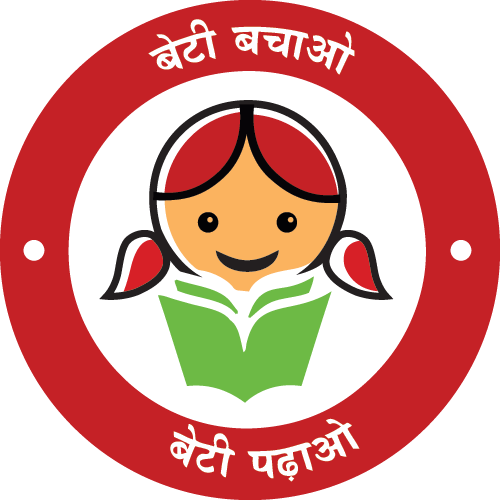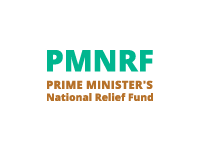Member, Dr. Charu WaliKhanna was Chief Guest in the National Commission for Women organized National Consultation to review Scheme UJJAWALA implemented by the Ministry of Women and Child Development Government of India at Kolkata on 24.02.2014
Member, Dr. Charu WaliKhanna was Chief Guest in the National Commission for Women organized National Consultation to review Scheme UJJAWALA implemented by the Ministry of Women and Child Development Government of India at Kolkata on 24.02.2014 in Collaboration with Child in Need Institute [CINI].
The inaugural session commenced with the lighting of the lamp and felicitation of the guests with flower by girls from urban slums. Dr. Samir Chaudhuri, Director, CINI gave the welcome address and Dr. Charu WaliKhanna, Hon’ble Member, the National Commission for Women, was chief guest and Mr. Asadur Rahaman, Chief, UNICEF State Office, West Bengal, guest of honour.
The technical session was chaired by Dr. Charu WaliKhanna, Honourable Member, NCW and co-chaired by Dr. P. M. Nair, IPS [Retd.], Chair Professor, TISS, Dr. Hemlata S. Mohan, Former Chairperson, Jharkhand SCW, Ms. Apala Sett, Member Secretary, West Bengal State Commission for Women. Participants in the Consultation included Authorities from State WCDs from different States, Resource Persons from 7 states and other dignitaries.
Dr Charu WaliKhanna, Member, NCW said India is emerging as a source and destination point for human trafficking. Trafficking is not only restricted for commercial sexual exploitation but also for other sexual abuse and exploitative labour. She pointed out that, review and restructuring of UJJAWALA scheme is also very necessary. The scheme sets forth a community- based approach for human trafficking prevention. Apart from government efforts, NGOs are undertaking prevention work independently as well as within government programmes. As of date, 273 projects including 151 Protective and Rehabilitation Homes are being supported under the Scheme. These rehabilitation centres are given financial support for providing shelter and basic amenities, as well as for undertaking vocational training and income generation activities to provide the victims with alternate livelihood option.
According to Government records, incidents of human trafficking have been increasing steadily since 2008. Trafficking, however, is no longer limited to Commercial Sexual Exploitation (CSE) only. Trafficking for exploitative labour is also on a steady rise. State of Jharkhand reported high rates of human trafficking for domestic and forced labour. A large number of women are also trafficked into deceptive marriages. She said there has been an increasing trend of children being trafficked from the states of Jharkhand, Chhattisgarh, Odissa, Assam, West Bengal and Madhya Pradesh for the purpose of domestic labour.
As per the ATSEC [Action against Trafficking and Sexual Exploitation of Children] Jharkhand Report in 2010, approximately 42,000 girls have been trafficked from Jharkhand to metropolitan cities. Victims working as domestic helpers are in pathetic conditions and girls are often forced to join the trade of flesh. The ATSEC study in 8 districts of India, indicated that most of the trafficked victims are below 20 years, whose main destination for migration is Delhi.
In striking contrast to this reality, Jharkhand is yet to have a home under the UJJAWALA scheme.
States of Chhattisgarh and Mizoram also face the same problem of non-existence of UJJAWALA homes, though both these states are vulnerable for trafficking.
West Bengal, which shares its international border with Nepal, Bhutan and Bangladesh, serves like a human trafficking super highway. The rate of human trafficking through these porous borders for CSE is extremely high. Only two homes are presently active under the UJJAWALA scheme in the entire state. Needless to say, there is an acute shortage for shelters and rehabilitation homes.
Rescue operations are getting hindered due to lack of infrastructural facilities like shelter homes at sources of trafficked victims, inadequate and delayed funding and non-existence of proper method of operation. Re-integration is a bottleneck as victims are tabooed and socially ostracized. Lack of alternatives is encouraging them to flesh trade. Relevant skill development and vocational training is neglected under UJJAWALA. Funding needs to be increased and regularized to monitor such activities.
Another major problem in most states is low conviction rates. In states like West Bengal and Maharashtra have registered a large number of cases, convictions have only been about 4% and 5%, respectively.
Non-cooperation and lack of coordination among different Government Departments are delaying the rescue and re-integration procedures. Also many are not aware of the existence of the scheme UJJAWALA.
The recommendations are consolidated into six major points:
1. Strengthening the Prevention strategies - Good practices and innovations may be mapped and shared with the stakeholders and also in relevant websites,
2. Shelter Homes in source areas – needs assessment,
3. Strengthening convergent actions among various departments,
4. Awareness generation on the scheme – how to make the scheme visible – needs financial allocation also,
5. Identify gaps in monitoring mechanism and how to strengthen it, and
6. provision for vocational training and family reintegration process
In addition:
- The National Plan of Action, 1998 needs to be reviewed and the same needs to be notified. State Governments should also draft their Plan of Action to Combat Human Trafficking.
- There is an urgent need for a review of the Rehabilitation Schemes for trafficked victims.
- There is an urgent need to undertake a vulnerability mapping study and research to find out the vulnerable areas and pockets of India
- The AHTUs (Anti- Human Trafficking Unit) and the Police need to ensure scientific and efficient investigations into the cases of crimes against children and women. The present rate of conviction stands at 25%-30% only.
- There should be one Plan of Action for prevention of trafficking as well as rescue at all levels. Thus, UJJAWALA should be strongly linked with Integrated Child Protection Scheme [ICPS] especially with the Anti-trafficking Units, run by the Ministry of Women and Child Development, Government of India.
- Government run Shelter Homes for rescued victims are to be built in every State with major emphasis on border or vulnerable areas having high rate of human trafficking. NGOs, mostly working in isolation, should be connected in the Government networks and proper co-ordination to be maintained between them.
- Funds for the shelter homes need to be sanctioned on time to avoid mismanagement of the shelter homes. The present system of sanction of installments is very time consuming and needs to be reviewed.
- Small organizations are failing to satisfy all the requirements under the scheme and so they are denied of registrations. Scarcity of shelter homes can be solved if these eligibility conditions are revised for small organizations.
- A proper State and Central Government co-ordination is definitely required for implementation of UJJAWALA in all states.
- Awareness generation and Prevention component in UJJAWALA scheme needs to be emphasized. Government initiatives and funding provision should be strengthened, involving local NGOs in the vulnerable area
- Traffickers are using Google maps to identify target areas, but rescuers are not using. Usage of available facilities and net-workings is required and strongly recommended.
Presentation was given by Ms. Sunanda Mukherjee, CP, WBSCW, Mr. Asadur Rahman, UNICEF, Dr. P M Nair, Mr. Rajib K Haldar, Mr. Nirnay John Chettri, Ms. Hemlata S. Mohan, Mr. Satish Kumar Sharma, Ms. Shoba Chhetri, Mr. Digambar Narzary, Mr. Arun Pandey, Dr. Samarjit Jana among others.




















